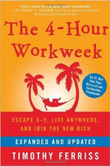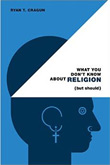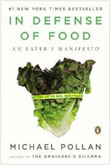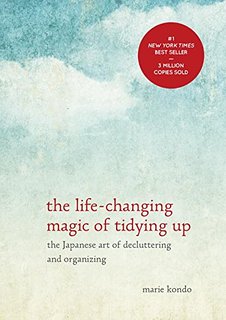Review - The End of Absence
Exploring What's Lost in a Connected World
Brandon Sun, October 19, 2015 - David McConkey
Serendipity led me to The
End of Absence at the Brandon Public Library. And a good
thing, too. This enjoyable and thoughtful new book is a useful
antidote to the influence of the Internet and mobile devices. The
subtitle is Reclaiming
What We’ve Lost in a World of Constant Connection. And that
message may be just what we need as we increasingly find ourselves
diving into full phone burrow.
Author Michael Harris is a Vancouver writer and editor. Born in
1980, he is keenly aware of being a member of the straddle
generation, the last to remember life without the Internet. Today’s
young are so wholly caught in the web, they don’t notice – like fish
being unaware of water.
Harris builds on earlier critiques of the digital age and of media
in general. Especially noted are two Canadians: “medium is the
message” man Marshall
McLuhan and novelist and artist Douglas Coupland. (Harris also
refers to a book that I reviewed here a few years ago: Nicholas
Carr’s The
Shallows: What the Internet is Doing to Our Brains.)
 Harris expands our understanding of the media
landscape. He identifies a powerful new phenomenon combining the
Internet and mobile devices. This convergence is like a new medium
itself, creating “a world of constant connection.” (A helpful
glossary contains some newfangled terms like “straddle generation”
and “phone burrow.”)
Harris expands our understanding of the media
landscape. He identifies a powerful new phenomenon combining the
Internet and mobile devices. This convergence is like a new medium
itself, creating “a world of constant connection.” (A helpful
glossary contains some newfangled terms like “straddle generation”
and “phone burrow.”)
The author points out that we are being seduced on a deep level. We
have evolved to be drawn to motion and distraction, just as we have
evolved to crave salt, sugar and fat. So we are as hardwired to be
entranced by the Internet and smart phone as we are to reach for
junk food.
One interesting example explored by the author is about how romantic
relationships are sparked. Before the Internet, less than 1% began
through classified ads in the newspaper. Today, more than 20% of
relationships begin online.
And the pace is accelerating. Like much of the Internet, Plenty of Fish – the world’s
largest dating site – is moving from desktop to mobile. Now, 80% of
visits to that website are from cell phones. And as people go
mobile, they visit the website three or four times more often than
they did from their desktops. A mobile user checks out Plenty of Fish 10 times a day.
The pace is quickening not only technologically, but also
generationally. Every month, the average adult sends and receives
text messages by the hundreds. For teenagers? It is by the
thousands.
Increasingly, we live digitally. The Internet becomes the “real
world.” But we miss something: chances – often random – for silence,
for reflection, for aloneness. And we miss something else as well.
Harris quotes Henry David Thoreau: “Not till we have lost the world,
do we begin to find ourselves.”
“I fear we are the last of the daydreamers,” Harris laments. “I fear
our children will lose lack, lose absence, and never comprehend its
quiet, immeasurable value.”
Harris breaks the spell of constant connection in his own life. He
tackles War
and Peace, a book that in five previous attempts he never got
past the first few pages. He also embarks on a bold experiment: one
whole month with no Internet, no e-mail, no text messages, no mobile
phone.
“Feels like I just stepped off an incredibly fast ride and the sheer
s-l-o-w-n-e-s-s of everything is freaking me out,” the author writes
on the experiment’s first day. “Hello, 1987.”
But as the month proceeds, Harris reports a change. “At first there
was this bewildering, wind-swept void where my online world had
been. Now, haltingly, I place other things in that void. A book. A
walk . . .”
The author is wistful as he contemplates “absence,” which is – of
course – not there. And which is not of obvious benefit. In the end,
Harris discovers “no totalizing theory, no maxim.” There are not
even “10 easy steps to living a healthy digital life.” Instead, he
offers his book to readers as “a meditation more than a
prescription.”
“I can make my little changes now. I turn off the phone, I ignore
the e-mail; I do seek out solitude,” he concludes. “Those, and this
larger one: the fact that I feel AWAKE to the end of absence, now.
It hurts a little more to be without it.”
See also:
"The End of Absence" on
Amazon.com (on
Amazon.ca
)
Surfing World Wide Web Breeds Shallow Thinking
Deepening Our Thinking in the Internet Age: Ten Tips
This Book is Overdue! (A Review)
Salt, Sugar, Fat: Book Blows Lid Off Food Industry
Popular Right Now:
- 15 Tips for Healthy Eating
- Quality of Life, Well-Being Research Something We Can Feel Good About
- Diets Don't Work, So What Does?
- Political Contributions: Top Ten Canadian Tax Tips
- Nestle Fitness 14 Day Weight Loss Program; What is Wrong Here?
- Charitable Donations: Top Ten Canadian Tax Tips
Must Read Books:
The 4-Hour Workweek:
Escape 9-5, Live Anywhere, and Join the New Rich

What You Don't Know About Religion (But Should)

In Defense of Food:
An Eater's Manifesto

The Life-Changing Magic of Tidying Up:
The Japanese Art of Decluttering and Organizing

Don't
Even Think About It:
Why Our Brains are Wired to Ignore Climate Change

Like This? Share It!
Press Ctrl + D to Bookmark!
